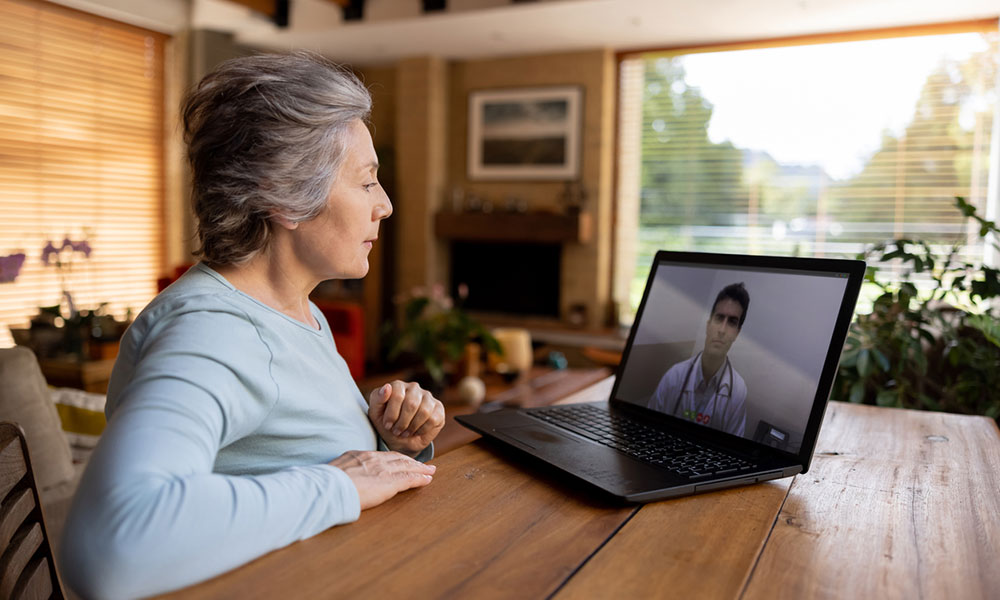
An interdisciplinary team of UBC Okanagan researchers has teamed with rural residents to identify how to better connect them to health care.
As the new year arrives, many people resolve to take better care of their health.
But, as UBCO researchers have determined, the road to improved health isn't always smooth for people who live in small and rural communities.
"Diabetes, cardiovascular disease, asthma, poor mental health and obesity are higher in rural and remote areas than in urban communities in Canada," explains Dr. Kathy Rush, Professor in UBCO's School of Nursing. "Such health inequities are exacerbated by geography."
Hazardous mountain passes, snowstorms, ferry schedules, travel time and fuel costs all are challenges people in rural places face when trying to meet their health-care needs.
Knowing these challenges so well, Dr. Rush and other UBC Okanagan faculty across multiple disciplines teamed up to create the Rural Health Equity Cluster. Their goal is to improve the lives of rural residents through conducting community-based rural health research.
The cluster's latest research examines how technology can better connect rural residents to health-care services.
Participants from 10 rural communities in BC's interior were asked to brainstorm technology solutions. They then rated the solutions on both their feasibility and their importance. Lastly, the researchers and participants came together as a group to interpret the results.
"Engaging with the community provided a diversity and richness of ideas," says Dr. Rush, Rural Health Equity Cluster co-lead. "The participants not only told us about the potential of technology, they also wisely informed us of its pitfalls."
The collaborative process used what's known as concept mapping. Related ideas are placed into clusters to co-create a visual solution.
One of the clusters included technology solutions such as real-time teleconferencing and smartphone apps to remotely monitor patients' health. However, in another cluster, participants emphasized the need for tools to be simple and accessible. For example, rural communities need reliable and affordable internet and cellular coverage.
One participant compared technological tools to sitting in your car with a fob in your pocket and having your car start.
"When you're the user, what you want is almost a manual button that you push 'start' and it works."
Yet another cluster of ideas focused on training and support for patients, families and health-care staff. In this case, a participant said people need an ambassador who "can push the buttons and ensure that when I want to talk to the specialist, I can talk to the specialist and not worry about clicking."
"The participants in this study made clear that digital literacy is often overlooked in the development of technology solutions," says Dr. Eric Li, Associate Professor in the Faculty of Management and fellow co-lead of the cluster. "This confirmed for us that rural voices must be included in the design and delivery of tools to advance health equity."
Fellow researcher Dr. Cherisse Seaton facilitated the virtual discussions with the participants and oversaw the data collection. She says including rural community members in all the steps of the concept mapping process has additional benefits.
"Using this approach, which was a bit different from usual, might have a lasting and positive impact on participants' perception and engagement in community-based research."
The post Technology may help eliminate health inequities for people in rural communities appeared first on UBC Okanagan News.
 Hole punched in Walmart
Hole punched in Walmart Cop cleared after cyclist hit
Cop cleared after cyclist hit Seniors in the housing crisis
Seniors in the housing crisis Tracking bird flu in cows
Tracking bird flu in cows Alberta braces for drought
Alberta braces for drought Premiers want co-operation
Premiers want co-operation Trump jurors express anxiety
Trump jurors express anxiety Iran fires at attack drones
Iran fires at attack drones  World's largest election
World's largest election  Body Shop explores sale
Body Shop explores sale Apple pulls apps from China
Apple pulls apps from China Oil and gas leases restricted
Oil and gas leases restricted Warriors ready for Round 2
Warriors ready for Round 2 Kalamalka Bowl cancelled
Kalamalka Bowl cancelled Rockets live to fight on
Rockets live to fight on Hilton teams up with Sia
Hilton teams up with Sia Swift still 'can't forgive' Kim
Swift still 'can't forgive' Kim Grimes to ‘cap the disarray’
Grimes to ‘cap the disarray’




